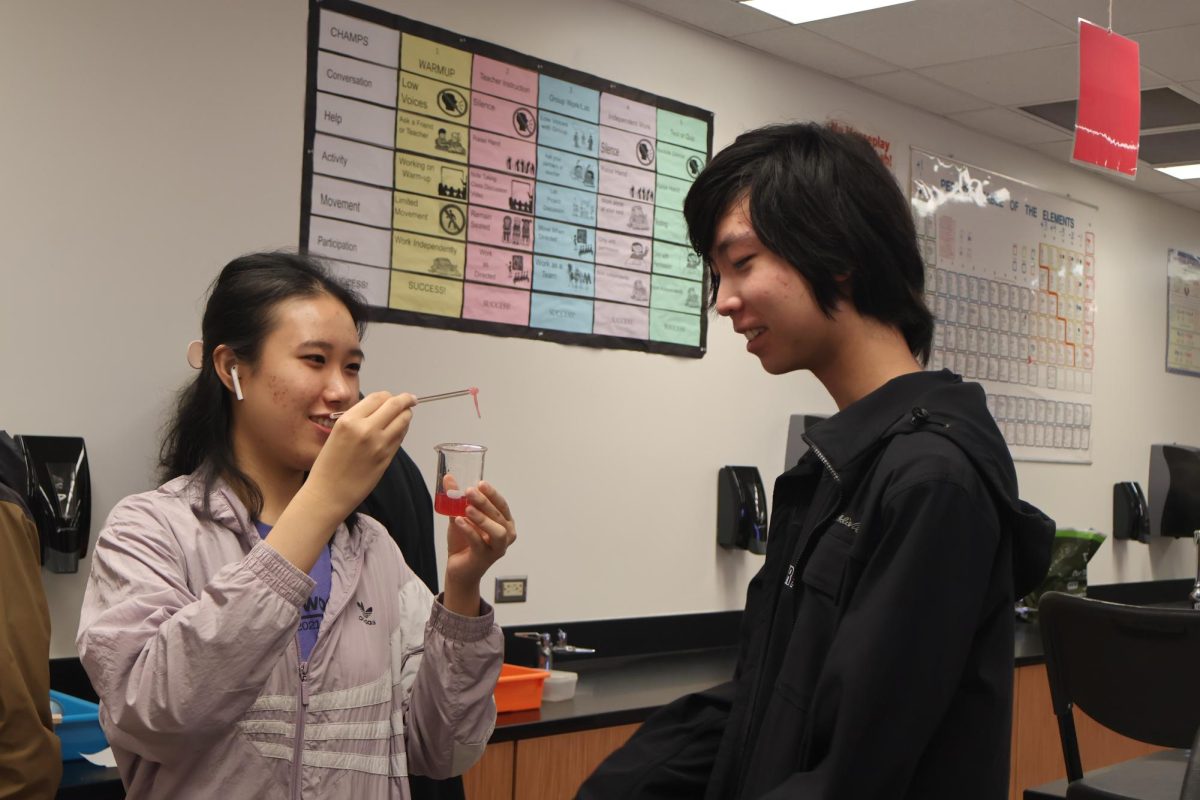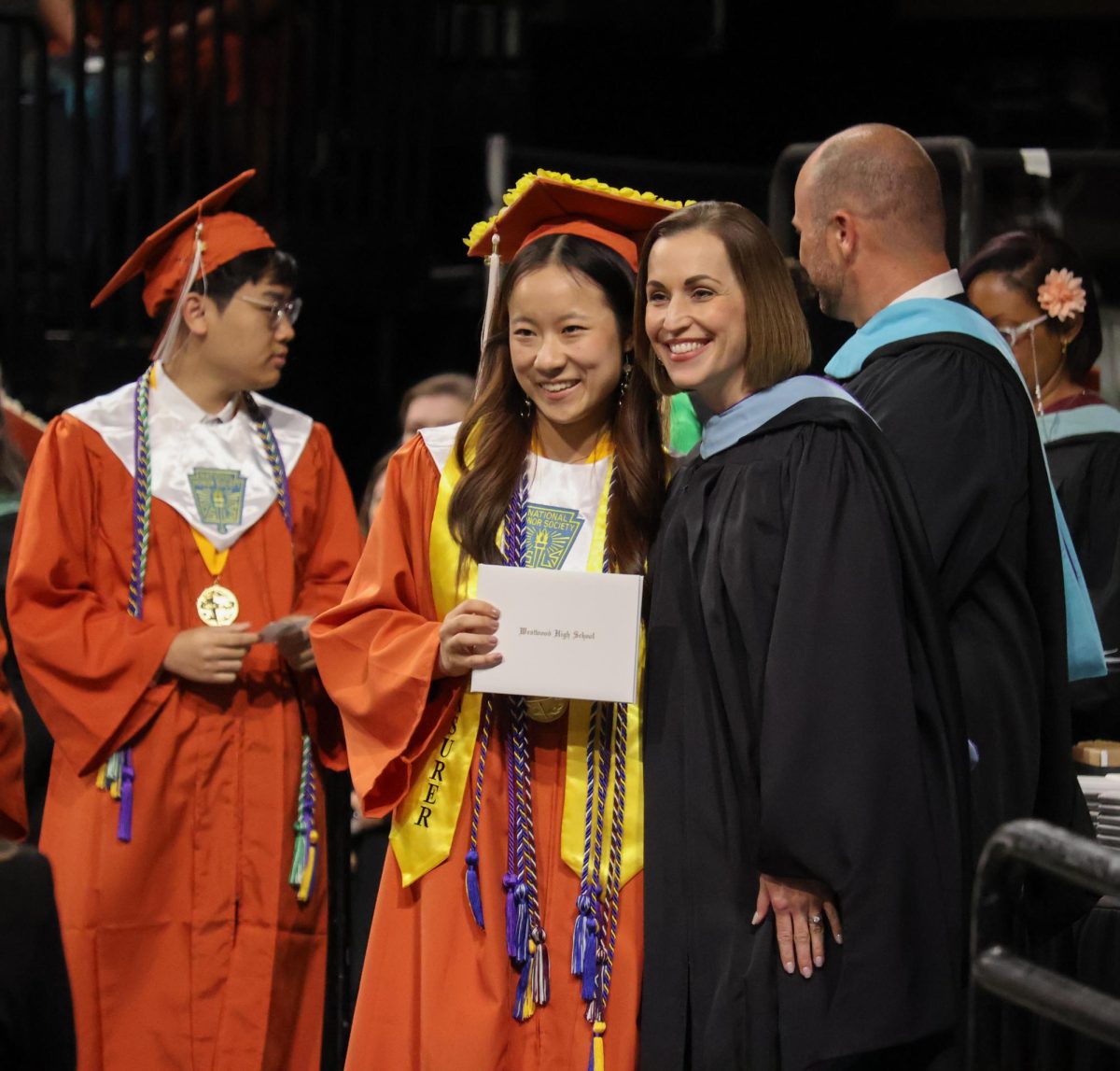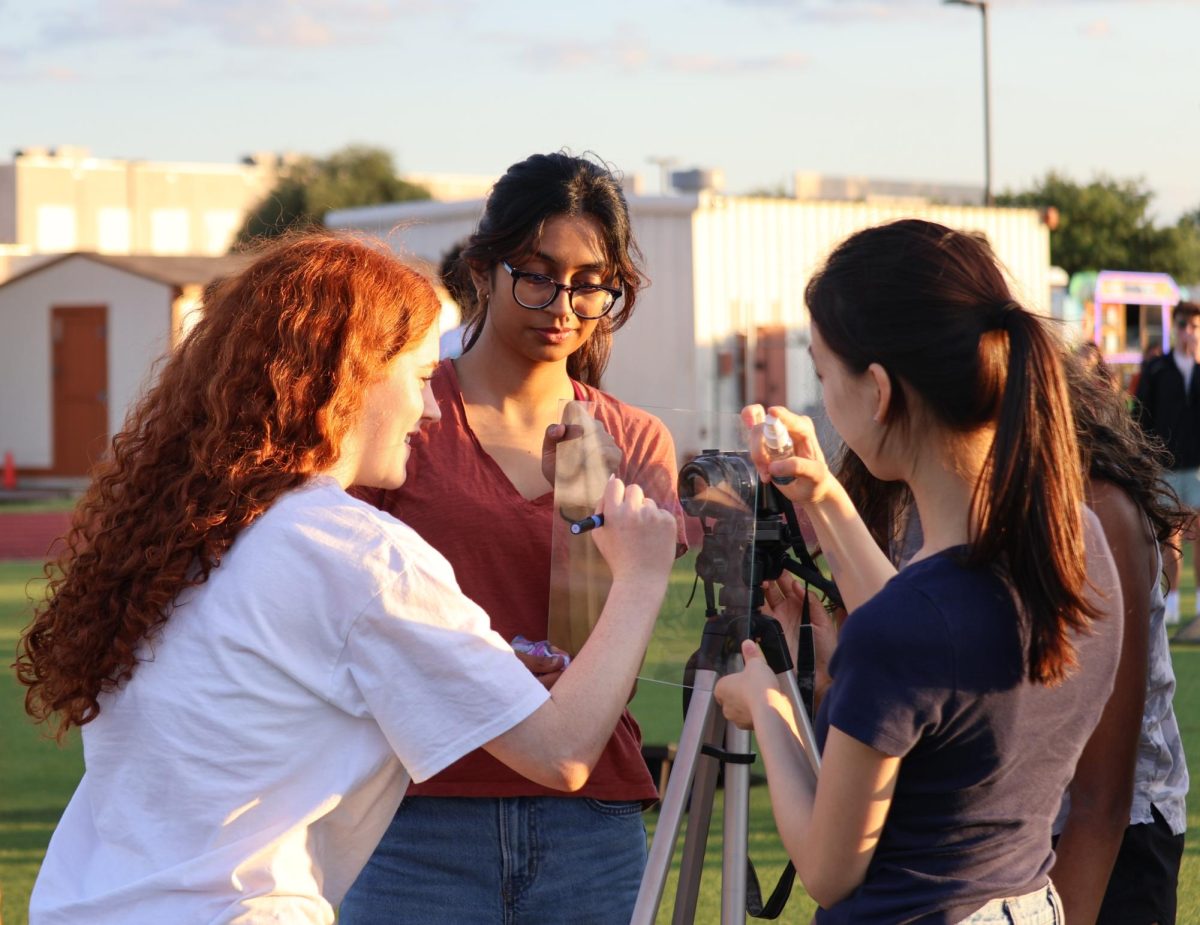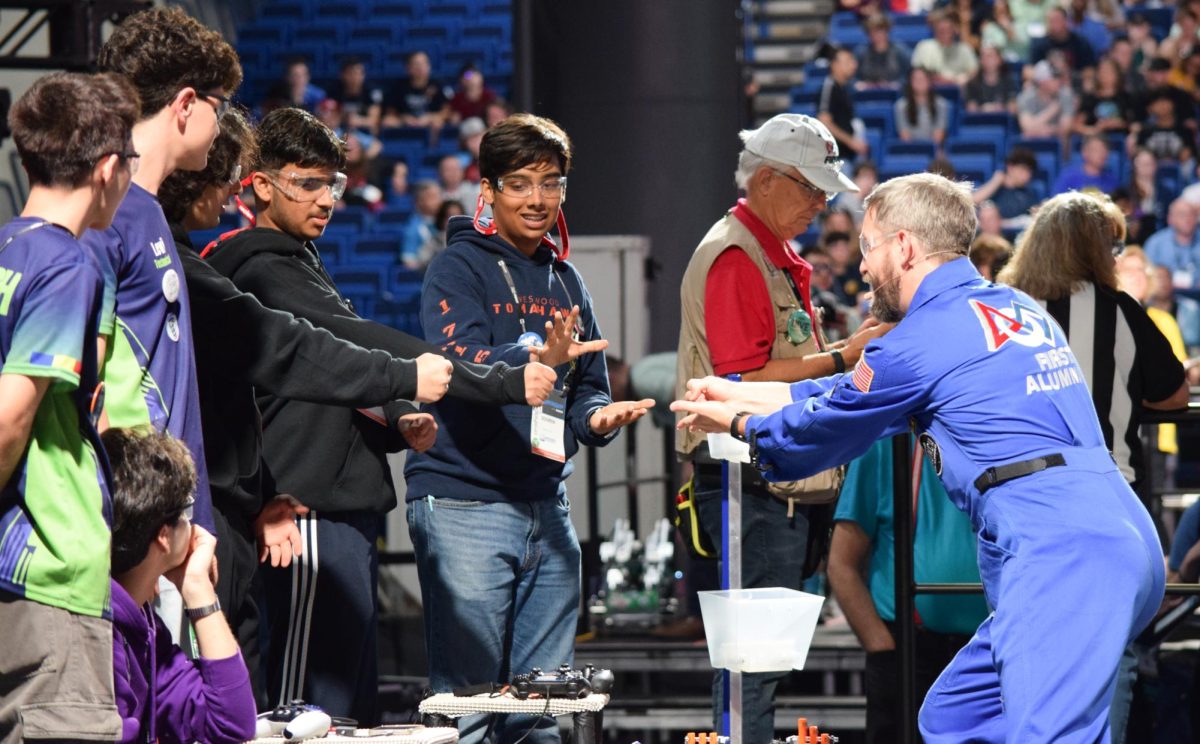On Wednesday, Oct. 11, Genetic Engineering Club held a strawberry DNA extraction lab after school in Dr. Lim’s room. The club meets twice a month to discuss genetic engineering and its applications. In the previous meeting, club officers shared a presentation on the history of genetic engineering to club members to establish context for future learning. The strawberry DNA extraction lab was chosen as the club’s first interactive activity because it was engaging and simple.
“Genetic engineering is a very technical field of science and requires a lot of equipment that our school can’t provide,” Genetic Engineering Club Outreach Coordinator Jennifer Dai ‘24 said. “With a DNA extraction lab, the materials and procedures are simple to follow and gives students a start to genetic engineering.”
At the beginning of the meeting, the officers briefly explained the lab process. Participants smashed strawberries within a plastic bag, poured DNA extraction solution into the bag, and mixed the bag’s contents a second time. Then, they filtered out the larger strawberry chunks, poured rubbing alcohol into the remaining liquid, and stirred, examining the strawberry DNA that collected in the upper layer of the liquid.
“The most fun part of the lab [was] definitely seeing how the DNA extraction happens when the alcohol is added into the solution, [but it was] challenging seeing how much you needed to add in order for a reaction to happen,” Dai said.
The procedure gave club members the opportunity of hands-on practice with extracting DNA and learning what isolated DNA looked and felt like.
“I think [the club is] more for the biomed students, because [it looks at] some topics that we will cover during the biomed pathway,” Dr. Lim said. “[The club also delves into] things we can do outside of [the biomed pathway], like application in the real world.”
Beyond its connection to biomedical students, the club allows students to deepen their understanding of the growing field of genetic engineering. With its potential to modify organisms, genetic engineering could have a major impact on how humans live in the future.
“I think genetic engineering is a very quickly upcoming field of science, with new technologies and discoveries only accelerating,” Genetic Engineering Club President Brian Zhang ‘24 said. “[But] with discoveries come implications, and that’s what I’m most interested in, where the field is headed, where it could be applied, and what all this could mean for humanity.”
Future Genetic Engineering Club activities that the officers are considering include topic discussions over GMOs and CRISPR, meetings with professional speakers, and more simulation labs. The club’s next meeting will take place on Wednesday, Oct. 25.






![Holding her plate, Luciana Lleverino '26 steadies her food as Sahana Sakthivelmoorthy '26 helps pour cheetos into Lleverino's plate. Lleverino was elected incoming Webmaster and Sakthivelmoorthy rose to the President position. "[Bailey and Sahiti] do so much work that we don’t even know behind the scenes," Sakthivelmoorthy said. "There’s just so much work that goes into being president that I didn’t know about, so I got to learn those hacks and tricks."](https://westwoodhorizon.com/wp-content/uploads/2025/05/IMG_0063-1200x1049.jpg)







